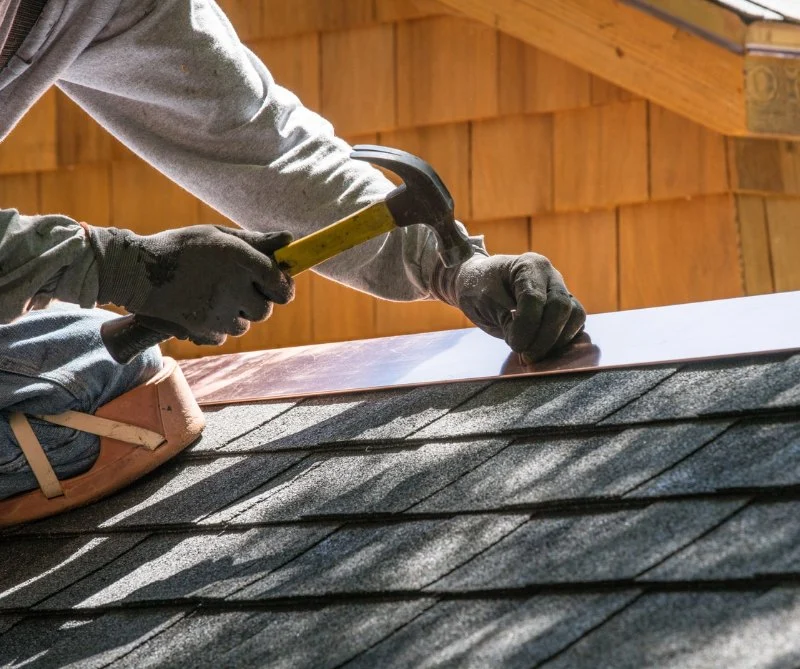
Choosing Between Residential and Commercial Roofing Solutions
- 1-Overview: Residential vs. Commercial Roofing
- 2-Key Differences Between Residential and Commercial Roofing
- 3-Factors to Consider When Choosing Roofing Solutions
- 4-Roofing Materials for Residential and Commercial Buildings
- 5-Case Study: Choosing the Right Roofing for a Business
- 6-Common Roofing Issues for Both Residential and Commercial Properties
- 7-When to Call Professional Roofing Contractors
1. Overview: Residential vs. Commercial Roofing
When it comes to choosing roofing solutions for your property, it’s important to understand the difference between residential and commercial roofing. Whether you’re a homeowner or a business owner, your roof is a vital part of the building’s structure and protection from the elements. While both residential and commercial roofing serve the same basic purpose—protecting your home or business from weather—there are significant differences in the types of materials, installation processes, and maintenance requirements for each.
In this article, we’ll explore the key differences between residential and commercial roofing, factors to consider when choosing a roofing solution, and the most common roofing materials used in each case. Whether you’re repairing, replacing, or installing a new roof, understanding these differences will help you make a more informed decision that fits your needs and budget.
2. Key Differences Between Residential and Commercial Roofing
Although both types of roofing serve the same function, there are several key differences that set residential and commercial roofing apart. Here are some of the primary distinctions:

SB Pro Roofing / sb pro roofing
Pinellas ParkPinellas CountyFlorida
6358 49th St N, Pinellas Park, FL 33781, USA
1. Roof Structure and Design
Residential roofs are typically sloped, with steep pitches that allow water to run off easily. In contrast, commercial roofs are generally flat or have a very low slope. This difference in design impacts both the type of materials used and how the roof is installed.

Absolute Roofing / absolute roofing
TimoniumBaltimore CountyMaryland
22 W Padonia Rd # B229, Timonium, MD 21093, USA
2. Roofing Materials
Residential roofing typically uses materials like asphalt shingles, metal roofing, or tiles. These materials are chosen for their aesthetic appeal, ease of installation, and durability. On the other hand, commercial roofing commonly uses materials such as built-up roofing (BUR), modified bitumen, or single-ply membrane systems (TPO, EPDM, PVC) that are better suited for larger, flat roofs.
3. Cost and Installation Time
Residential roofing tends to be less expensive than commercial roofing because residential roofs are smaller and simpler to install. Commercial roofs, due to their size and complexity, require more time and resources to install, which can lead to higher costs.
4. Maintenance and Longevity
While both residential and commercial roofs require regular maintenance, commercial roofs tend to have a longer lifespan due to their durable materials and design. However, they may require more frequent inspections due to the complexity of their systems and the larger area they cover.
3. Factors to Consider When Choosing Roofing Solutions
When deciding between residential and commercial roofing solutions, several factors should influence your choice. Let’s take a look at some of the key considerations:
1. Building Type
The type of building you are working with is the first consideration. A residential home will typically have different needs compared to a commercial property like an office building or a warehouse. The roof needs to match the building’s design, functionality, and purpose.
2. Budget
Your budget will play a major role in the type of roofing solution you choose. Residential roofs can be installed with more budget-friendly materials like asphalt shingles, whereas commercial roofs may require more expensive options due to the size of the building and the materials required for flat or low-slope roofs.
3. Climate and Weather Conditions
Depending on where you live, climate and weather conditions can significantly influence your roofing choice. In areas prone to heavy rain, snow, or extreme temperatures, you may need a roof that can withstand these conditions for both residential and commercial properties. This can affect the choice of materials and roofing systems.
4. Energy Efficiency
Both residential and commercial roofs benefit from energy-efficient solutions. Cool roofing systems that reflect heat and solar panel systems can be beneficial for both types of buildings, especially in regions with hot climates. Roof insulation also plays an important role in energy efficiency.
4. Roofing Materials for Residential and Commercial Buildings
Different roofing materials are used for residential and commercial buildings based on the needs, structure, and environment of the property. Below are some of the most common roofing materials used in each scenario:
1. Residential Roofing Materials
Residential roofs are often made from materials that are aesthetically pleasing and relatively easy to install. Some common residential roofing materials include:
- Asphalt Shingles: The most popular and cost-effective option for residential roofs. Available in a variety of colors and styles.
- Metal Roofing: Durable, energy-efficient, and long-lasting, metal roofs are gaining popularity among homeowners.
- Clay or Concrete Tiles: Often seen in Mediterranean-style homes, these tiles provide a unique aesthetic and excellent durability.
2. Commercial Roofing Materials
Commercial roofs, due to their flat or low-pitched designs, require materials that are capable of covering large, open spaces efficiently. Common commercial roofing materials include:
- Built-Up Roofing (BUR): A layered system of asphalt and gravel, offering excellent durability and water resistance.
- EPDM (Ethylene Propylene Diene Monomer): A type of synthetic rubber often used for flat roofs. Known for its long lifespan and flexibility.
- Metal Roofing: Used in commercial applications for its durability and ability to withstand harsh weather conditions.
5. Case Study: Choosing the Right Roofing for a Business
Take the case of a large retail store in California. The business was expanding and needed to replace the roof of its 10,000-square-foot building. The company opted for a single-ply membrane roofing system, which was ideal for the flat roof of the commercial building. The choice was made due to its durability, energy efficiency, and cost-effectiveness over the long term.
While residential roofing would have been more aesthetically pleasing, it would not have been suitable for the commercial building’s needs. The business saved money in the long run by choosing a roofing system that suited the building’s size, climate, and function.
6. Common Roofing Issues for Both Residential and Commercial Properties
Both residential and commercial roofs can face common issues, including:
1. Leaks
Leaks are the most common roofing issue for both types of properties. They can be caused by damaged shingles, poor flashing, or clogged gutters. Regular inspections and maintenance are essential to prevent leaks from causing major damage.
2. Poor Installation
Improper installation can lead to problems such as roof sagging or water pooling. It’s important to choose a reputable roofing contractor to ensure proper installation.
3. Wear and Tear
Over time, all roofs experience wear and tear from the elements. Regular maintenance and prompt repairs can help extend the lifespan of the roof.
7. When to Call Professional Roofing Contractors
For both residential and commercial roofing needs, there are times when it’s best to call in a professional. If your roof has extensive damage, requires a full replacement, or has issues beyond basic repairs, it’s important to contact a licensed roofing contractor. Professionals have the experience, knowledge, and equipment necessary to handle complex roofing projects safely and efficiently.


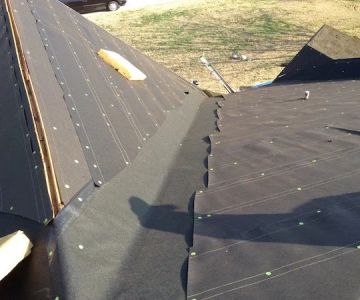
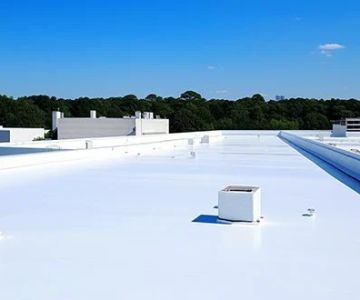


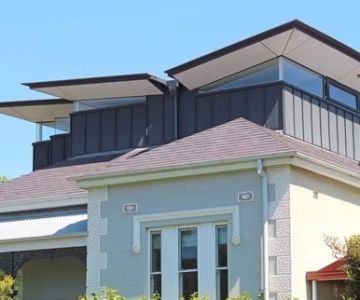
 Secure Roofing4.0 (27 reviews)
Secure Roofing4.0 (27 reviews) Patuxent | A PAX Services Company3.0 (11 reviews)
Patuxent | A PAX Services Company3.0 (11 reviews)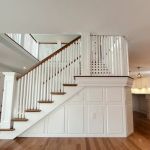 Merrimack Roofing & Construction Group5.0 (21 reviews)
Merrimack Roofing & Construction Group5.0 (21 reviews) Roof 1 Construction5.0 (46 reviews)
Roof 1 Construction5.0 (46 reviews) Kaygan LLC5.0 (1 reviews)
Kaygan LLC5.0 (1 reviews) Community Pro Roofing LLC4.0 (82 reviews)
Community Pro Roofing LLC4.0 (82 reviews) How to Choose a Roof Color for a House with a Blue or Gray Exterior
How to Choose a Roof Color for a House with a Blue or Gray Exterior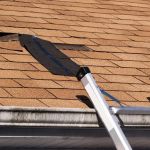 What to Do When Your Roof Fails a Home Inspection
What to Do When Your Roof Fails a Home Inspection What to Do If Your Roof Starts Leaking During a Storm
What to Do If Your Roof Starts Leaking During a Storm How Roofing Affects Home Resale Value: Boosting Curb Appeal and ROI
How Roofing Affects Home Resale Value: Boosting Curb Appeal and ROI A Comprehensive Guide to EPDM, TPO, and PVC Roofing Membranes for Flat Roofs
A Comprehensive Guide to EPDM, TPO, and PVC Roofing Membranes for Flat Roofs How to Finance a New Roof Without Breaking the Bank – Complete U.S. Guide
How to Finance a New Roof Without Breaking the Bank – Complete U.S. Guide